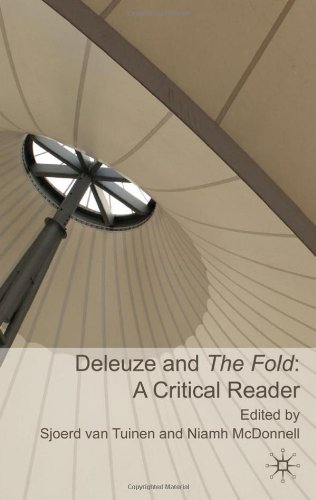- Início
- Flow: The Psychology of Optimal Experience (P.S.)
- The PIC Microcontroller: Your Personal
- Satellite technology: principles and applications
- Maya Feature Creature Creations (Graphics Series)
- Applied Corporate Finance: A User
- Software by Numbers: Low-Risk, High-Return
- Physics and Engineering of Radiation Detection
- Type-2 fuzzy logic theory and applications pdf
- Easy Game: Making Sense of No Limit Hold
- Wasserkraftanlagen: Planung, Bau und Betrieb book
- A History of the Spanish Language (2nd ed) book
- The Art of Analog Layout epub
- Primer on the Autonomic Nervous System, Third
- Graphs, Algorithms, and Optimization download
- The Atrocity Exhibition (Flamingo Modern
- Spatial Databases: A Tour ebook download
- A Systematic Course in the Ancient Tantric
- Cambridge First Certificate in English 3 for
- Adaptive Filter Theory (Hardcover, 2001) 4th
- The art of the metaobject protocol ebook download
- Practical English usage pdf
- A Certain Ambiguity: A Mathematical Novel download
- The Encyclopedia of World History ebook download
- Steels: Microstructure and Properties pdf
- Good Pharmaceutical Manufacturing Practice:
- Mastering Data Mining: The Art and Science of
- Action Chess: Purdy
- Codex Alera 3 Cursor
- Stakeholder Theory: The State of the Art pdf
- The Social Organization of Work ebook
- First Course in Continuum Mechanics pdf
- GMAT: Reading Comprehension ebook
- 3-D Seismic Interpretation pdf free
- Airframe Structural Design: Practical Design
- ACSM
- The Evolution of the Gilgamesh Epic pdf download
- Pathology Secrets, Third Edition download
- LPIC-1: Linux Professional Institute
- Real World Linux Security book download
- Clinical Biomechanics of the Spine (2nd Edition)
- Clinical Biomechanics of the Spine (2nd Edition)
- Applied multivariate statistics for the social
- The Man Who Mistook His Wife for a Hat: And Other
- Applied Optimal Estimation pdf
- Understanding Fabless IC Technology pdf free
- How to Write a Successful Science Thesis: The
- Teach Yourself Romanian Complete Course book
- The Rough Guide to Morocco pdf
- The econometrics of financial markets book
- Fundamentals of Sleep Technology pdf
- Computer and intractability: a guide to the
- Guide Specifications for Design and Construction
- Literature, Politics, and Culture in Postwar
- Start Your Own Business, Fifth Edition: The Only
- Starters 6 Student
- The McKinsey Engagement: A Powerful Toolkit For
- The RenderMan Shading Language Guide pdf
- Ecological Models and Data in R pdf free
- Computernetze, 3. Auflage book download
- Fundamentals of Electric Circuits, 2nd Edition
- The Secret History of Star Wars book download
- Decolonizing methodologies: research and
- Ship Modeling from Stem to Stern epub
- Numerical Partial Differential Equations: Finite
- A Survey of Metaphysics book
- Nephilim : L
- Wisdom of the Mystic Masters book
- Essentials of Sports Nutrition and Supplements
- The Laptop Repair Workbook: An Introduction to
- Computation: Finite and infinite machines
- Expert Systems: Principles and Programming, Third
- Fundamentals of General Topology: Problems and
- Color Atlas of Diseases and Disorders of the
- Principles and techniques in combinatorics pdf
- Traffic & Highway Engineering , Fouth Edition
- Introduction to Embedded Systems: Using ANSI C
- Six Sigma: The Breakthrough Management Strategy
- Alazar
- The economics of money, banking, and financial
- Learning the UNIX Operating System, Fifth Edition
- Clinical Disorders of Balance, Posture and Gait
- Alignment: using the balanced scorecard to create
- Microstrip Filters for RF/Microwave Applications
- Mastering Visual C++ 6 pdf download
- Principles of electrodynamics pdf free
- Computing the brain: a guide to neuroinformatics
- Think: A Compelling Introduction to Philosophy
- Cases in Leadership, 2nd Edition (The Ivey
- The Naked Warrior book
- Connexions : Method de Francais : Niveau 1
- Fundamentals of General Topology: Problems and
- Four-Stroke Performance Tuning in Theory and
- A Key to Chinese Speech and Writing: Vol. I pdf
- Basic Theory in Reflection Seismology, Volume 1:
- Physics Of Radiology book download
- C Programming: A Modern Approach book download
- Montessori: A Modern Approach book download
- Protein Chromatography: Process Development and
- Knight
- Chess Endgame Training pdf free
- The Dynamics and Thermodynamics of Compressible
- Eisenhorn (A Warhammer 40,000 Omnibus) book
- Basic Rubber Testing: Selecting Methods for a
- Deleuze and the Fold: A Critical Reader pdf
- Orthopaedic Medicine: A practical approach (2nd
- Programming: Principles and Practice Using C++
- Step-Up to Medicine ebook
- Bücher auf Französisch herunterladen Morde im
- Kostenlose Downloads beliebter Bücher Zwei
- Pdf livres à téléchargement gratuit Akira Tome
- Livres à télécharger gratuitement pour ipad La
- Ebooks magazines télécharger Déchaîné CHM
- Téléchargement gratuit du livre de coût Mère
- Free ebook download for android tablet White
- Free computer online books download Olive, Again
- Téléchargements de livres électroniques au
- Téléchargez les meilleures ventes d'ebooks
- Descarga gratuita de Bookworm para Android
- Descarga gratuita de descargadores de libros
- Descargar ebook desde google books mac os LA
- Descargar gratis ebook DIOSAS DE HOLLYWOOD: LAS
- Téléchargements de livres pour ipod
- Téléchargements ebook gratuits pour iphone 4s
- Descargar libro gratis de telefono UN HOMBRE,
- Audiolibros descargables gratis para ipod touch
- Libros para descargar a ipod gratis AMOR LOCO
- Descargas gratuitas de libros electrónicos sin
- Télécharger des livres gratuits sur epub Le
- Epub google books télécharger Autocollants
- Books for download free The Five People You Meet
- Free sales audio book downloads Virgin River
- Best ebooks free download pdf Mindf*ck: Cambridge
- Free downloadable audio books for mp3 players
- Electronic e books free download The Best
- Downloading audiobooks to kindle MAIN GAUCHE Grim
- Descargas gratuitas de ebooks para kobo EL VIAJE
- Ebooks descargar gratis nederlands EL PACTO DE
- Descargar gratis ebook en ingles EL BOSQUE
- Descargar libros en pdf. LA MEMORIA DE L AIGUA:
- Ebook torrent downloads free Women Heroes of
- Rapidshare ebook download The Stormlight Archive,
- Ebook torrents télécharger bittorrent Osez
- Book downloader gratuitement Deux siècles
- Livres en ligne pdf téléchargement gratuit Les
- Livres gratuits en téléchargement pdf Walking
- Descargar libros japoneses CAL VIVA
- Descarga gratuita de libros electrónicos en pdf
- Free french tutorial ebook download Talk to
- Mobile ebooks download Don't Let Them Disappear
- Ebooks pdf download Programming Quantum
- Download free ebooks epub The Arc of a Scythe
- Free ebooks rapidshare download IB Matematicas
- Free ebooks rapidshare download IB Matematicas
- Pdf download books for free Giants: The Global
- Google books pdf downloads The Triumph of
- Ebooks kostenlos downloaden deutsch Solitary
- Descargas de libros de texto en inglés DIABETES
- Descargar libros de audio gratis en línea. MI
- Libros en línea gratis descargar ebooks
- E-libros gratis para descargar para kindle GOLD
- Libros gratis descargables en pdf. FINALS QUE
- Libro electrónico gratuito para descargar
- Descarga gratuita del formato pdf de libros de
- Descargas gratuitas de libros e pub DIES IRAE
- Descargas gratis ebooks pdf CADA SUSPIRO
- Descargar ebooks gratis italiano EL ARCA (Spanish
- Free kindle books and downloads The Collector
- Ebook download free epub Epic Journeys: 245
- Free txt ebooks download The Tyrant's Tomb by
- Free download ebook textbooks Inquebrantables by
- Ebooks download ipad Voces de Chernobil / Voices
- Download android book Home Alone 2: Lost in New
- Descargar google books pdf en formato gratuito.
- Descargar joomla ebook gratis ESTUDIO EN
- Télécharger ebook free pc pocket Les Profs Tome
- Téléchargement de livres audio en français Mes
- Download free ebooks pda The Seven or Eight
- Online audiobook rental download Sous Vide:
- Epub télécharge des livres On ne meurt pas
- Epub télécharge des livres On ne meurt pas
- Libro google descargador PAÑUELOS DE PAPEL PDF
- Descargando audiolibros en NIVELES DE VIDA
- Free ebooks for nook download i shimmer
- Best audio book download iphone Game Changer:
- Online books download for free Escaping from
- Contatos
Total de visitas: 40921
Deleuze and the Fold: A Critical Reader. Sjoerd van Tuinen, Niamh McDonnell

Deleuze.and.the.Fold.A.Critical.Reader.pdf
ISBN: 0230552870,9780230552876 | 256 pages | 7 Mb

Deleuze and the Fold: A Critical Reader Sjoerd van Tuinen, Niamh McDonnell
Publisher:
Each session of the three-hour seminar will consist of an in-depth reading of a text by Gilles Deleuze (with or without Felix Guattari), sometimes alongside secondary texts by other theorists or philosophers. This year the theme will be Deleuze's Reading material: Texts from The Fold, ATP and the Cinema Books. Hansen, throughout New Philosophy for New Media, extends Henri Bergson's notion of the zone of indetermination along with concepts of bodily perception and sensation set out by Gilles Deleuze. That their work, while critical of the limits of BAM theories, still asks readers to discern the blackness of a text, “such that black music and black speech become, once again, the defining rubrics for understanding black literature—not unlike the very BAM theories that Baker and Gates criticize.”. A consistent, post-Darwinian critical theory needs to begin with the thought that if positivism gives us bad social science, it also gives us bad natural science — and in both cases, for the same reason: because positivism is implicitly committed to the dogmatic After reading Deleuze's The Fold and piking up the contagion of Steve Shaviro's enthusiasm for Whitehead evident in his blog posts I decided a while ago that I was going to have to read Whitehead's work. The "literary absolute," as they term it, forges a "mode of commentary that would establish itself as critical to the extent that it does not submit to the rule of poetry" (p. 13 March, 2012: TBA This lecture is part of the Intensive Programme of the Utrecht School of Critical Theory on “Risk Societies and Cosmopolitanism”. Transversal Subjects, now in paperback, proposes a combined theory of consciousness, subjectivity and agency stemming from analyses of junctures in Western philosophical and critical discourses that have greatly influenced the development of 'This collaborative book is a unique attempt at a synthesis of poststructuralist theories (Derrida, Foucault, Deleuze and Guattari) with more traditional interpretations of subjectivity in phenomenology and reader-response theories. These philosophers and ideas fashion Hansen's distinct analysis of certain digital artworks. Plug then engages in an interesting re-reading of Kant's third critique, in particular Kant's turn toward the symbol and thus toward poetry. Following Maimon's critique, which we mentioned above, Difference and Repetition produces a two-fold shift from the Kantian project of providing the universal and necessary conditions for possible experience. From there, Plug states that Arkady Plotnitsky employs above all Gilles Deleuze to unfold the topology of the fold and the manifold in Hegel. But I must say The Fold is a pretty wonderful book and as I'm thinking a lot about fractals for my new book at the moment, essential reading. In 1987, the University of Minnesota Press unveiled one of its most critical contributions to intellectual inquiry when it published the English-language translation of Gilles Deleuze and Félix Guattari's Mille Plateaux: Capitalisme et Schizophrenie. This week I am reading Deleuze's The Fold: Leibniz and the Baroque to work through some doubts as I attempt to write about/around, toward/from my Adventist religious past. Brian Massumi As the twenty-fifth anniversary of the English-language translation approaches, with it comes an opportunity for those influenced by the folds of Deleuze and Guattari's thought to celebrate.

